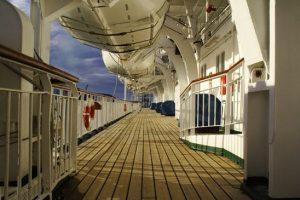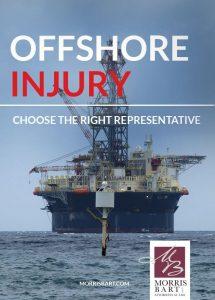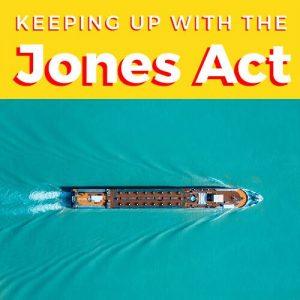
Workers on sea-faring vessels — or those in areas where customary state laws related to workers’ compensation may not apply — are left without state-mandated coverage. These jobs often put them at risk of serious accidents, chronic injuries, or exposure to chemicals that could lead to illness.
The Jones Act provides a means for workers who are hurt or become ill after offshore injuries to pay for their care and receive compensation for time missed at work while they recover. The Jones Act falls under 46 U.S. Code §30104.
Rights Provided by the Jones Act
The Jones Act applies to sea-faring vessels and those who work on them. These include oil rigs, ships, barges, smaller fishing boats, and vessels of a similar nature. The act creates a path for financial recovery when one of these workers suffers:
- An accident and injuries on board
- A chronic injury because of their work
- An illness related to an exposure or other work-related cause
Injured or ill workers can file suit and seek compensation if they are employed on a qualifying vessel when involved in an accident or activity that prevents them from working. In these cases, the defendants could be their employer, the boat’s captain, the boat owner, or another party.
Recoverable damages could include medical costs, including emergency evacuation from the vessel, lost wages, and non-economic losses.
For a free legal consultation, call 800-537-8185
The Merchant Marine Act of 1920
The Jones Act is not limited to providing injured workers with an option for compensation. The Jones Act is just one part of a much larger law — the Merchant Marine Act of 1920.
This act is one of the most well-known and expansive maritime laws in the United States. It covers many facets of how sea-faring vessels operate. In some cases, people refer to the full act as “the Jones Act.”
Other Maritime Laws Could Apply in These Cases
While the Jones Act provides protections for workers injured at sea, other maritime laws also apply under similar circumstances.
For example, the Longshore and Harbor Workers’ Compensation Act allows workers to pursue damages if they are working on a vessel that is in a harbor or dry dock, or if they are working on a pier, cargo area, or in other locations not covered by the Jones Act.
If the worker passes away from their injuries, their surviving family members may be able to recover wrongful death damages thanks to the Death on the High Seas Act. This law goes into effect when the offshore platform or vessel is at least three nautical miles from the shore.
While the Jones Act and the Longshore and Harbor Workers’ Compensation Act only apply to workers on ocean-going vessels, there may also be options if you were hurt as a passenger, volunteer, or another party on one of these boats. You should consider speaking with a law firm that handles offshore injuries and Jones Act cases.
Click to contact our personal injury lawyers today
Taking Action in a Jones Act Case
If you work on a sea-faring vessel or offshore rig, you probably already know that your job is dangerous. Many jobs in these industries require you to adhere to strict safety rules to ensure you remain safe.
However, this does not mean that you should not be able to pursue compensation for work-related injuries when they occur. Under the Jones Act, you may be able to hold your employer, captain, boat owner, or another party responsible when an accident occurs.
Per 46 U.S. Code §30106, you have up to three years to take action against the liable party or parties under the Jones Act. If you suffered injuries or received a diagnosis of a work-related illness, you may want to consider contacting an offshore injury law firm that will review your case and offer an opinion about your legal options.
Let Morris Bart, LLC Review Your Offshore Injuries Case for Free
The Morris Bart law firm represents clients whose offshore injuries fall under the Jones Act or other maritime law. We might be able to help you if you suffered injuries while working on a sea-faring vessel or as a passenger or other occupant of a qualifying vessel.
Call (504) 613-4771 now to get started with your complimentary consultation. We are a contingency fee law firm with an office in New Orleans and other cities across the Gulf South.
Questions?Call 800-537-8185
to find a Morris Bart office near you.




